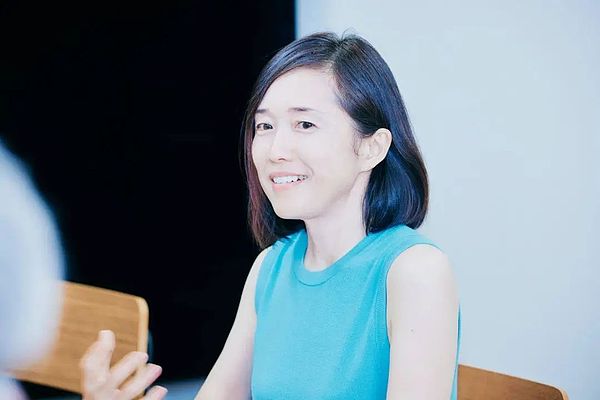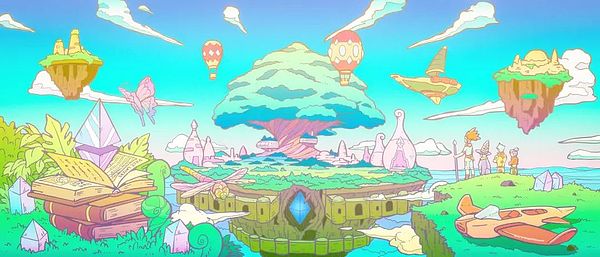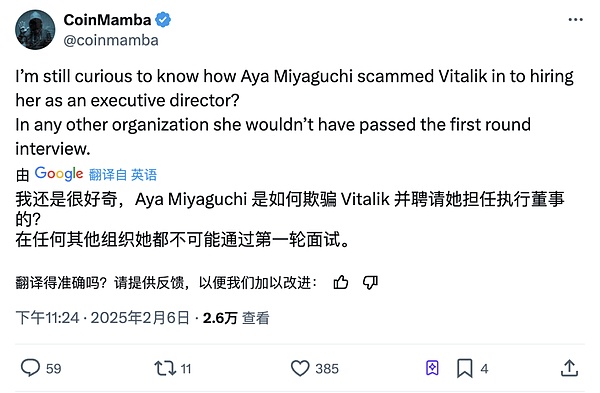Source: TechFlow
On February 25, when Ethereum was widely questioned, Aya Miyaguchi, who was once at the forefront of public opinion, became the new chairman of the Ethereum Foundation.
This was not a whim. The transition from the current executive director to the chairman of the Ethereum Foundation (EF) has been planned for a year.
Aya Miyaguchi said in a blog post, "Ethereum belongs to everyone, and because it does not belong to anyone, our culture of allowing different opinions not only tolerates differences - but becomes stronger through differences. The role of the Ethereum Foundation has never been to control or own all aspects of Ethereum.Our responsibility is to maintain the values of Ethereum."
From the Japanese classroom to the infinite garden of the crypto world, Aya Miyaguchi's story is not only a unique career transformation, but also a conflicting journey to protect values.
From the Japanese classroom to the crypto world
Aya Miyaguchi's career started not in the field of technology, but in education.
She worked at a high school in Nagoya, Japan. As a passionate teacher, she was committed to creatively designing courses to inspire students to think independently and be critical.
However, after more than a decade of teaching experience, she began to feel uneasy - just teaching textbook knowledge could not satisfy her pursuit of a deeper meaning of education. She hopes to help students become people who can explore the world independently, not just test machines.
"As a teacher, I often tell students that they should have the experience of going abroad at least once in their lives."
In the end, she set an example and paved a new path for herself, choosing to resign from her teaching position and go to the United States to study for an MBA.
This decision unexpectedly brought her into the world of blockchain and cryptocurrency.
While studying in the United States, Aya developed a strong interest in financial inclusion and believed that solving the problem of inequality was crucial for business.
By chance, she met Jesse Powell, the founder of the cryptocurrency exchange Kraken, and joined the company as the managing director of Kraken Japan.
However, her career was not all smooth sailing.
In 2014, coinciding with the collapse of Japan's top exchange Mt. Gox, the public image of cryptocurrency in Japan hit rock bottom. Faced with panic and distrust, Miyaguchi took the initiative to contact government agencies, participate in regulatory discussions, and work with industry organizations to promote the cryptocurrency regulatory framework that Japan later launched in 2017.
One episode was that she met Ethereum founder Vitalik Buterin, who was only 19 years old at the time, in the Kraken office in 2013. At that time, he was not "V God". His external identity was that he was a contributor to Bitcoin Magazine and was writing the Ethereum white paper.
Aya later recalled that she did not fully understand the technical details of Ethereum at the time, but she recognized that the technology had the potential to change the world. She was attracted by the vision of Ethereum, and especially appreciated its non-profit nature and the community's adherence to core values. In her view, Ethereum is not just a technology, but a new worldview that can challenge the existing centralized power structure. In 2018, after leaving Kraken, Aya was invited by Vitalik to join the Ethereum Foundation. At that time, the Foundation faced many challenges, including coordinating internal and external activities and establishing non-R&D functions. Although the task was arduous, she accepted the role, which she believed was also an opportunity for her to realize her personal ideals. "At that time, the crypto industry began to show a money-making atmosphere, and I felt that Ethereum might be the last hope to realize my original vision, that is, how decentralized technology can help achieve financial inclusion and help people without bank accounts get banking services, and I must help." As the executive director of the Ethereum Foundation, Aya adopted a unique leadership approach, which she called the "subtraction principle" - actively weakening her own power, avoiding centralized decision-making, while maintaining the open culture and decentralized spirit of Ethereum.
She described Ethereum as an "infinite garden", emphasizing its organic development characteristics and the importance of long-term thinking rather than short-term gains.

"Infinite Garden" and Zen-style management
For Aya, Ethereum is not only a technical project, but also an "infinite garden" that embodies the ideal of decentralization.
This metaphor comes from James P. Carse's "Finite and Infinite Games". She believes that Ethereum's mission is not to win short-term benefits, but to continuously promote the popularization and development of decentralized ideas.
She compares the Ethereum community to an unrefined natural park, full of diversity and vitality. Although there are sometimes radical voices or strange ideas, these may also become the source of future innovation.
"The Ethereum ecosystem did not initially have clear goals or milestones set by the Ethereum Foundation, but rather grew organically as people from different backgrounds joined the community. That's what the word "garden" means. However, rather than a manicured garden, it's more like a national park. It's a place full of biodiversity, with caterpillars and things that might eat some plants, rather than a place that relies on large amounts of pesticides.

Of course, there are people in the Ethereum community who say things that are too radical or even ridiculous. But they can also come up with some useful and original ideas. The important thing is not to suppress them, but to let nature take its course. I use the word "garden" to describe this natural state of balance, but I don't think any word is perfect."
In her view, decentralization is not only a technical challenge, but also a change in mindset. The privacy risks, data monopoly and abuse of power brought about by centralization have profoundly affected our lives. The decentralized thinking advocated by Ethereum can enable us to re-examine the social structure and change the relationship between people and technology.
Aya's leadership style is deeply influenced by Zen philosophy. It is somewhat similar to the "rule by inaction" advocated by Taoism, which is in sharp contrast to the traditional top-down management style.
She compares herself to a Zen teacher, training team and community members to maintain the spirit of Ethereum in a decentralized environment.
She took the "The Merge" upgrade as an example, emphasizing that this major technological change was completed without a "boss" or central authority, reflecting the self-coordination ability of the Ethereum community.
Under her leadership, the Ethereum Foundation has supported a number of public products and open source tools, such as Etherisc and other projects. In addition, she also participated in the Global Blockchain Committee of the World Economic Forum and served as a board member of the Ethereum Enterprise Alliance, expanding Ethereum's cooperation in the enterprise field.
Question and persistence
Aya's values and management style have been supported and recognized by Vitalik, but have also aroused doubts from the outside world.
To sum up, the doubts about Aya are mainly reflected in 5 aspects:
Qualification dispute
Some industry KOLs believe that her background (such as English literature and previous high school teaching experience) is not enough for the role of executive director, and question her professional ability.
For example, crypto KOL CoinMamba believes that she may not even pass the first round of interviews in other organizations.

Slow progress
Ethereum's expansion problem has always been the focus of the community. Some users believe that under Aya's leadership, the expansion solution has been slow, causing Ethereum to lag behind competitors such as Solana in market competition.
Expenditure issues
The foundation's financial management is also a focus of criticism. Some users believe that the foundation has a reserve of $800 million, but it spends too much and does not produce enough results.
Hands-off management, insufficient developer support
The Ethereum Foundation has been criticized for being too "hands-off" and failing to actively support developers in the ecosystem. Community members believe that the Foundation is too passive in technical support and resource allocation, resulting in developers needing to take more responsibility on their own.
$ETH underperforms
Some criticisms point to the disappointing performance of Ethereum tokens in the market, believing that under Aya's leadership, Ethereum has lost its lead over competitors.
Despite the above criticisms, Vitalik Buterin actively defended Aya on X, emphasizing her contributions to promoting Ethereum upgrades, Devcon events, and maintaining Ethereum culture, and criticized the community's attacks as "offensive."
A New Chapter for Infinite Garden
On February 26, 2025, Aya Miyaguchi announced her transition from executive director to chairman, and she also wrote an article, "A New Chapter for Infinite Garden," which is considered her future manifesto.
Aya emphasized the need to be guided by philosophy and maintain the values of Ethereum:
Ethereum's major technological advances, such as mergers and the shift to proof of stake, embody the philosophy of leading without controlling.
The goal of the Foundation is to help Ethereum achieve long-term sustainability, rather than pursuing short-term gains or traditional corporate expansion.
Ethereum's uniqueness lies in the interweaving of its technology and social innovation, making it an infinite garden.
The idea of decentralization has a profound impact on global society and democratic systems, and the Foundation is committed to upholding this value.
In summary, it can be summed up as follows: Subtraction, not minimalism. Long-term sustainability, not short-term gains. Well-thought-out complexity, not oversimplification. Management, not control Adaptive growth, not rigid structure. Purposeful evolution, not corporate expansion. Community leadership, not domination.
An interesting phenomenon is that in discussions on the Chinese Internet, when an organization is criticized, people tend to think that "there are bad people around xx, and xx was deceived by the bad people", similar to "King Zhou was bewitched by Daji". In the critical discussion against Ethereum, Aya became a similar "bad guy".
This is a little unfair to Aya. She has never changed and has always acted in accordance with her values and methods. It was Vitalik and the Ethereum Foundation who chose Aya, and they were both running for values.
In the crypto world where price drives attitudes, rising is justice, and values and ideology are often regarded as a kind of "nihilism". It is the simplest thing to please "Leviathan" and integrate into authority, which immediately makes asset prices To The Moon, but refusing to "compromise" and adhering to the ideals and principles of decentralization is more difficult and valuable.
Of course, we must also remain vigilant and supervise. History tells us that many movements under the banner of "lofty ideals" may also become tools of power.
The journey of Ethereum is not only a technical exploration, but also an experiment on human values.
The ideal of decentralization may be difficult to achieve, but it is this difficulty that makes it particularly precious.
As Mask founder Suji quoted a famous saying of Murakami Murakami at an event in Hong Kong:
"Between a solid high wall and an egg that hits it, I will always stand on the side of the egg."
 YouQuan
YouQuan






